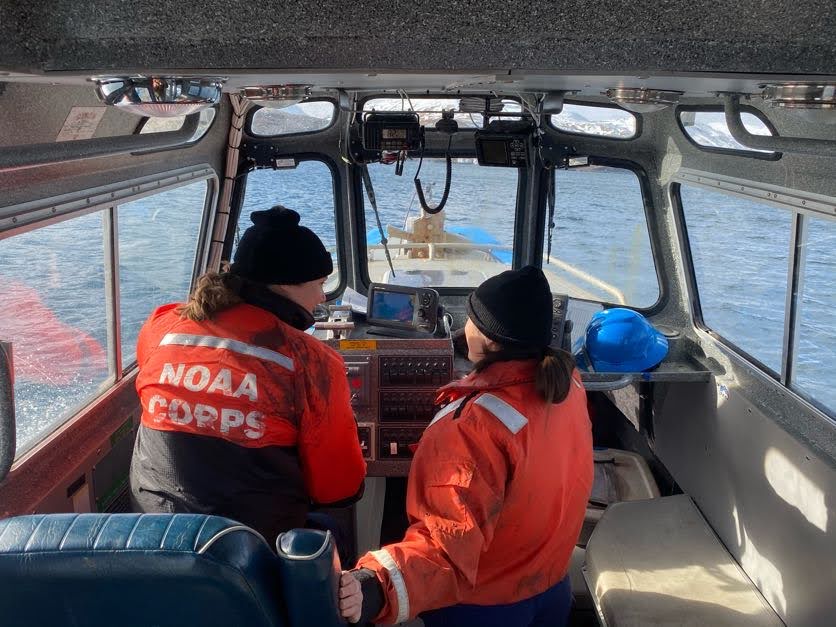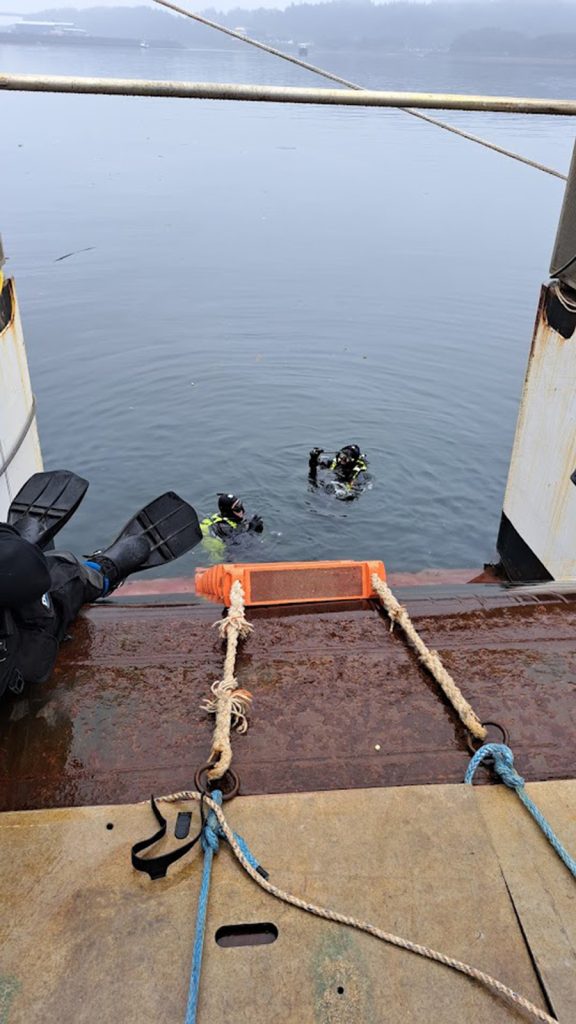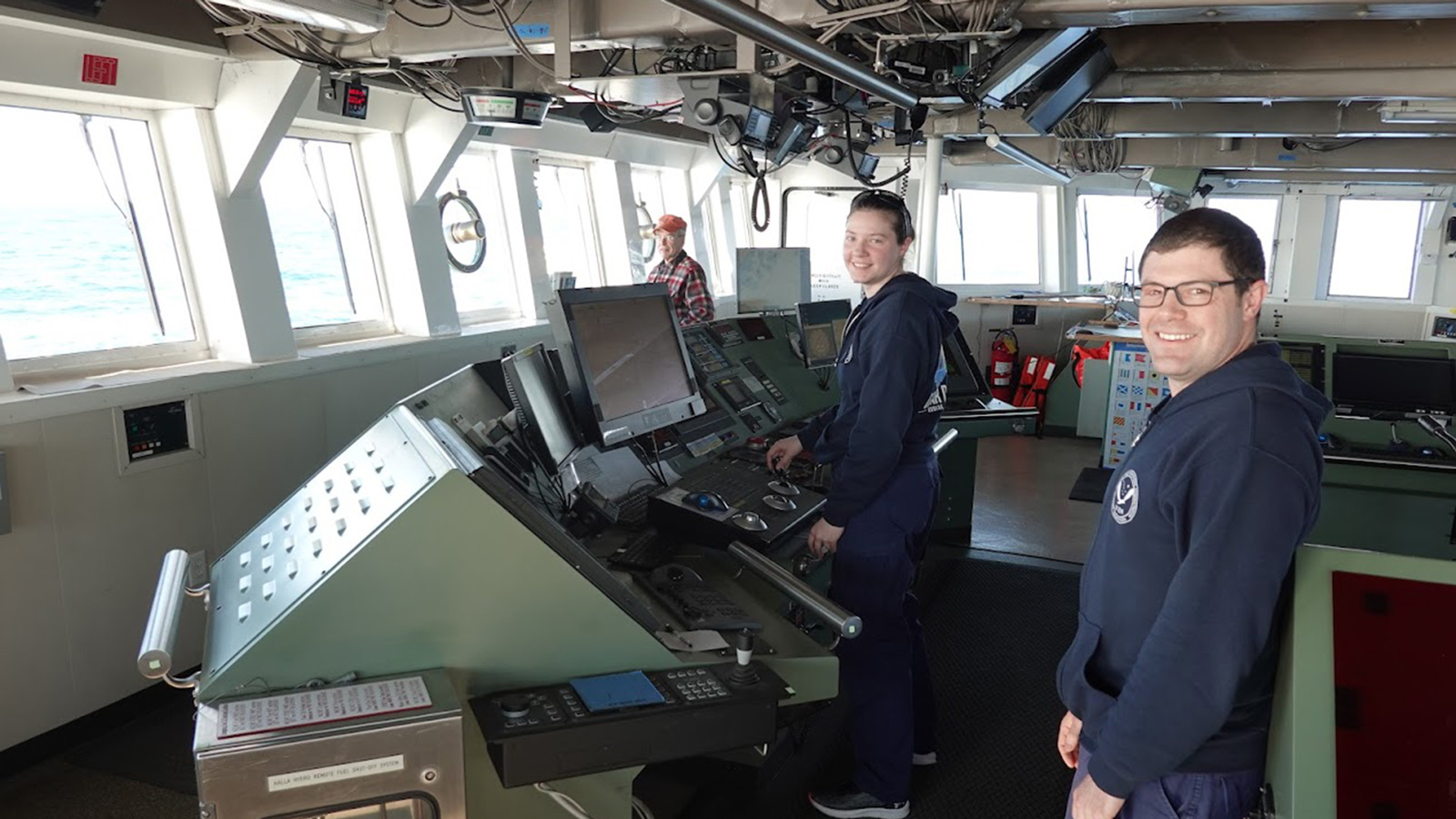Meet NOAA Corps Officer, LTJG Anna Gaskill
In honor of Women’s History Month, NOAA’s Atlantic Oceanographic and Meteorological Laboratory (AOML) spoke with our NOAA Corps Officer, LTJG Anna Gaskill, about her career at NOAA and her advice for women considering opportunities with the NOAA Corps. Anna currently serves as the AOML Operations Manager, primarily coordinating fieldwork on our boats and supporting the lab’s dive program.
Q: What did you do before coming to AOML?
A: Before coming to AOML, I was on the NOAA Ship Oscar Dyson based out of Kodiak, Alaska. As a fisheries research vessel, most of our operations were conducting surveys of the wild Alaska Pollock fishery, but we also did oceanographic mooring deployments, CTDs, and plankton net tows. My primary duties on the ship were standing watch, reviewing our charts, and planning routes. Before joining the NOAA Corps, I was a fisheries observer and an instructor at a marine science camp.
Q: What is something you wish more people knew about your work?
A: The NOAA Corps is a unique career path because it is a uniformed service that supports research and environmental protection. We move stations every 2-3 years, alternating between a sea assignment on a ship (or plane, in the case of the Hurricane Hunters and other aviators) and an assignment at one of NOAA’s many offices. I really like the opportunity to move around because it gives me a chance to try something new and see more of the country. The other benefit of moving around is that it gives us the opportunity to share innovations from other labs or research platforms that help advance operations and connections throughout NOAA.

Q: When do you feel most empowered as a woman in your position?
A: I feel most empowered when people look to me for advice or to take the lead on a project. It can be very daunting at first, especially being relatively early in my career, but having other people seek out my perspective validates my confidence in my own knowledge and experience.
Q: How can women make a difference by working in your field?
A: Representation is very important! When I was on the NOAA Ship Oscar Dyson, I was giving a tour to two female crewmembers who were new to NOAA. They had never been on a ship with a female captain before, even after years in the maritime industry. Just by being themselves in their field, women can inspire others to step up. It’s not easy being the only one or first of anything, so having more people around with shared experiences can help other women find the inspiration to pursue their field.
Q: What sort of progress do you hope to see in your field in the next 5 years?
A: I want to see more progress towards normalizing women in fieldwork, especially at sea. Women who spend long periods of time underway get asked far more questions or even face judgment about spending time away from home and their ability to continue fieldwork than their male counterparts. Everyone should feel supported professionally at work and be able to discuss their personal lives without pressure to justify their choices. I believe a concerted effort to make this a reality for all women in marine science and the maritime industry is absolutely attainable, and everyone has a role in making sure their coworkers feel respected and supported.

Q: For the young women looking to enter your field, what is your greatest piece of advice?
A: If there’s something that looks cool to you, just go for it! I meet plenty of people who learn a new skill, get a new qualification, or even start new careers well after they might be considered “early career ” or “recent graduate.” Whatever your experience, you have something to offer your field.
Q: What’s an interesting fact about yourself you would like to share?
A: I row at the Miami Rowing Club, and I love drawing comics or illustrating the sea creatures that I encounter.
